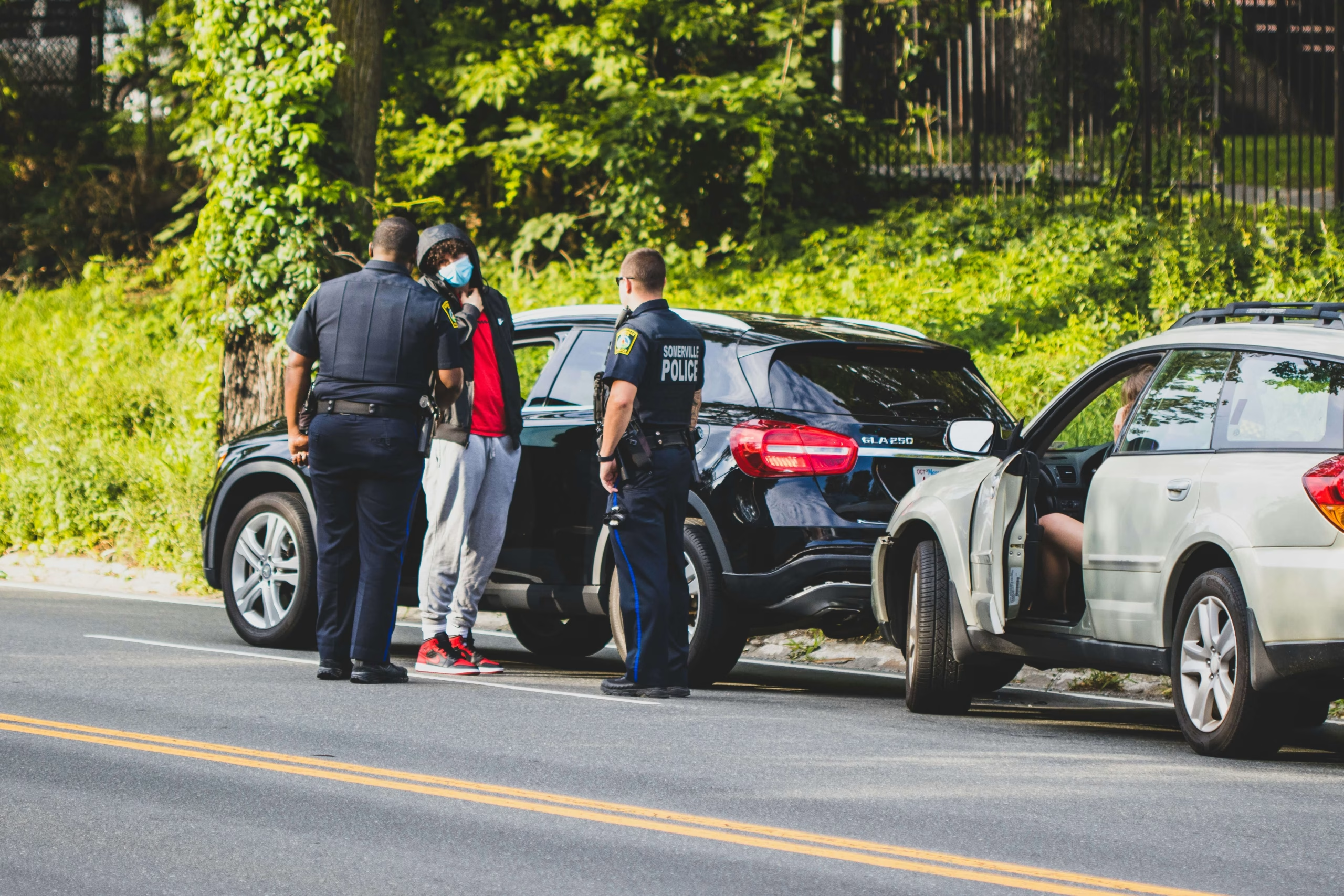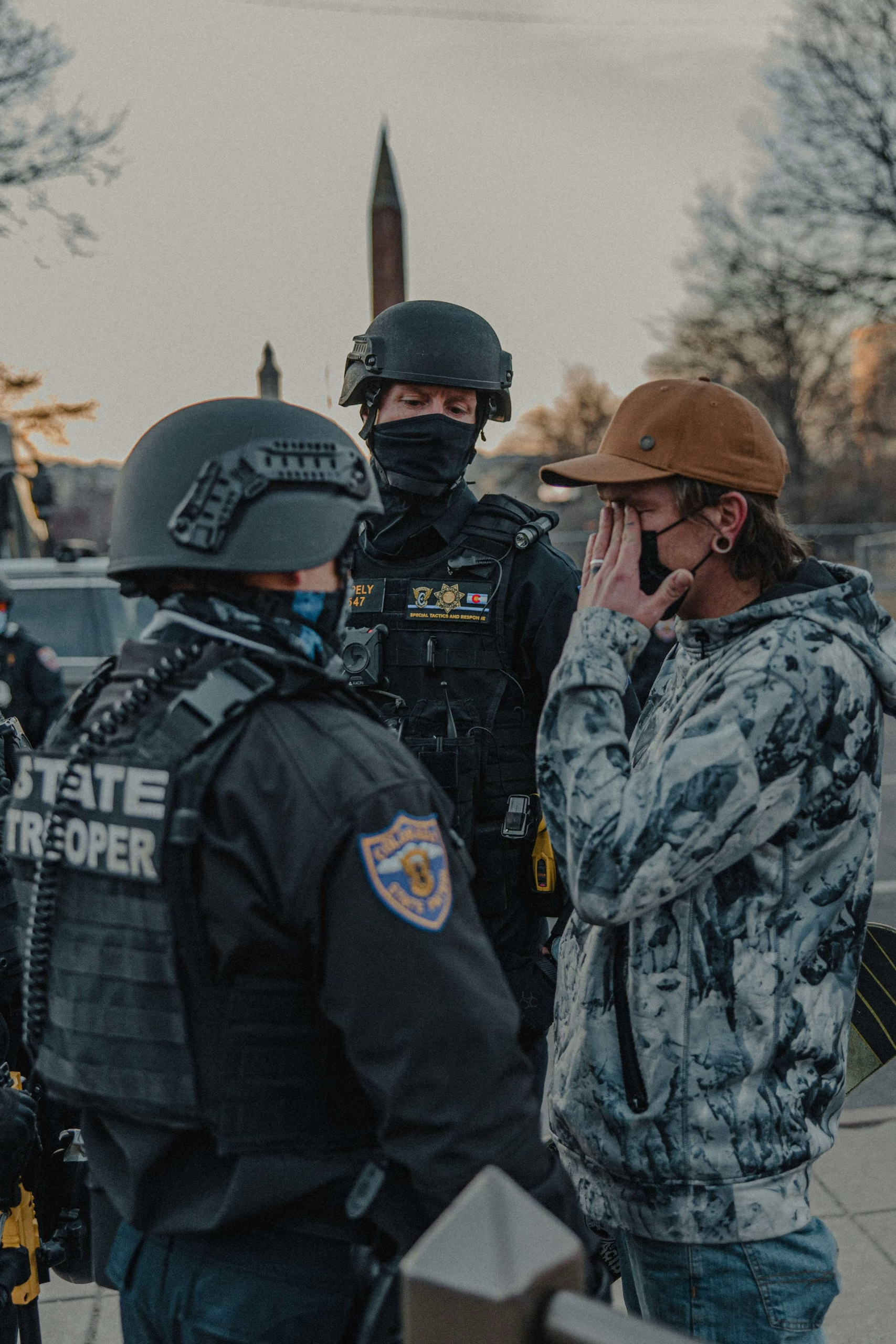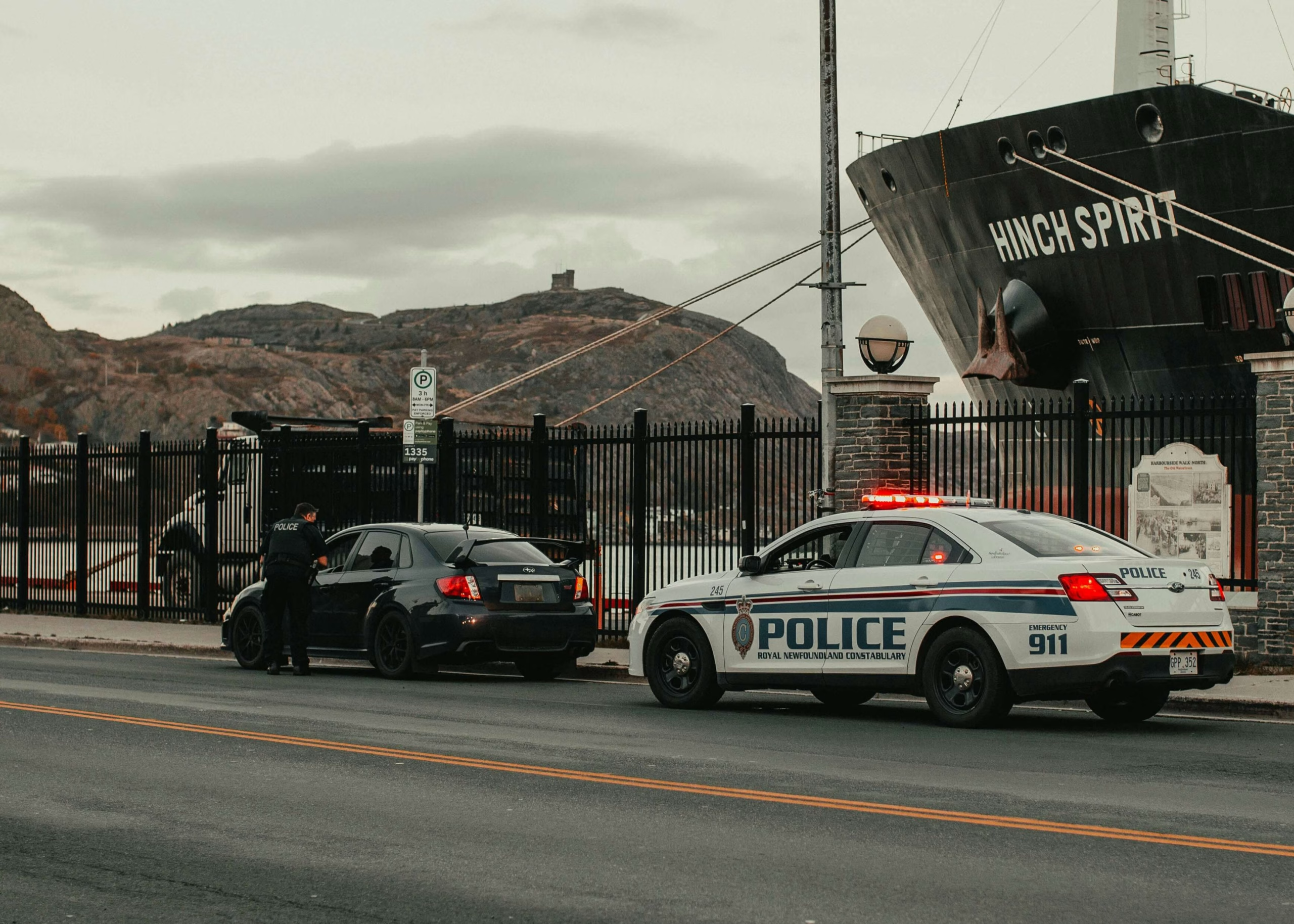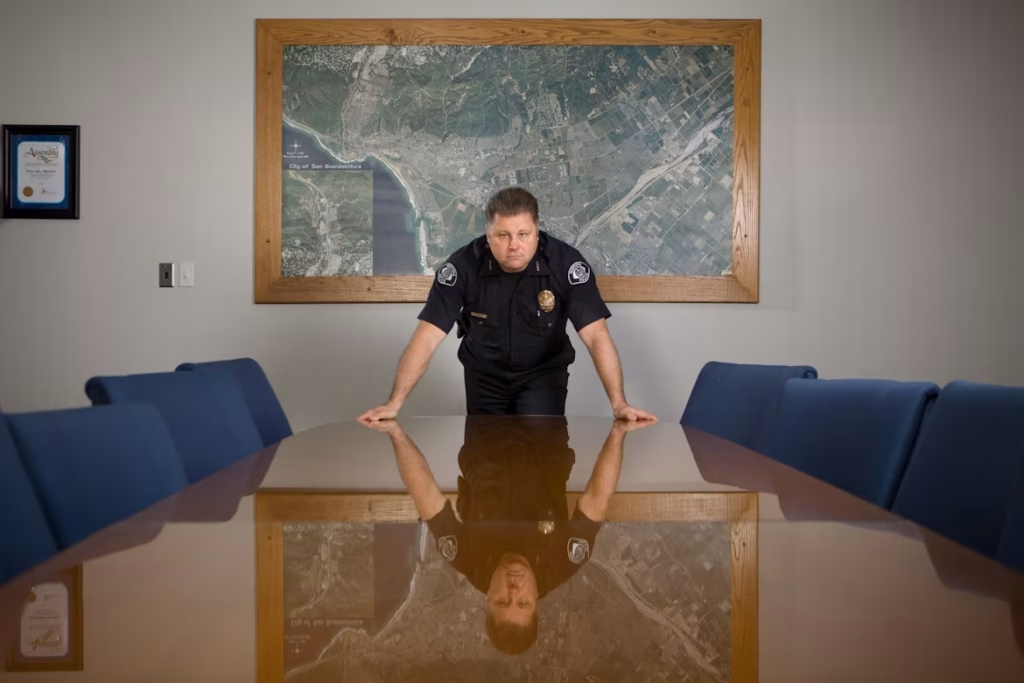Ever heard of false confession psychology? What about the Reid technique? These are both commonly used police interrogation tactics designed to trip you up and get a confession. These are also two sound reasons why you should never speak to the police without a lawyer.
Cops can play dirty tricks during interviews and interrogations. Law enforcement is even legally allowed to lie to you, according to Frazier v. Cupp (1969), where the Supreme Court ruled that deception by police during interrogation doesn’t automatically make the confession inadmissible. This is just one of the many deceptive police tactics used during questioning, and perhaps the most dangerous law enforcement interrogation technique you can encounter.
Examples include:
- “We have your fingerprints.” (Even if they don’t.)
- “Your friend already confessed and said you did it.” (Classic divide-and-conquer technique.)
- “We have you on video.” (Even if the cameras were off.)
- “You’ll feel better if you get this off your chest.” (No, you won’t.)
- “We can help if you cooperate.” (No, they can’t.)
Meanwhile, cops are not allowed to use physical force, threats of violence, or overt psychological abuse. They can’t deny you access to a lawyer once you request one, and they can’t keep questioning you after you invoke your right to remain silent. If they do, stay tuned for my upcoming blog on how to deal with dirty cops.

Police Interrogation Tactics to Avoid
Here’s how manipulation by police works:
The Casual Conversation Trap
If you think a stark interrogation room with a glaring lightbulb is the only place police gather intel, think again. Cops use tricks during questioning long before you’re even officially charged or arrested. They’ll say things like, “We just need help clearing things up,” or, “You’re not in trouble, we just have a few simple questions.” That’s the bait.
Here’s the kicker: as long as you’re not formally in custody, they don’t have to read you your Miranda rights. So, as soon as you start talking, everything you say can and will be used against you. This is an especially effective police interrogation tactic for those who believe silence makes them look guilty. The truth is that talking often makes you look worse.
Good Cop, Bad Cop
Dirty police interrogation tactics aren’t always straightforward. Many times, questioning involves coercion, manipulation, and gaslighting. One cop plays the aggressive, no-nonsense hardliner, while the other comes off like your buddy from high school who just wants to help you out of a jam. Don’t fall for it.
Law enforcement interview strategies and psychological tactics used by police are dangerous for the untrained suspect. Their bipolar approach is intentional — designed to wear you down emotionally so you’ll open up to the “nice one.” But don’t forget that both interrogators are trained in psychological tactics and both want the same result, which is a confession from you.
I played “bad cop” more times than I can count. One time, I kept a guy in the interview room for nearly 10 hours — no food, no clock, no way out. The “good” cop and I would take turns popping in and out of the room with calculated rhythm until he gave us what we wanted. That still haunts me to this day, but it’s only the beginning of the dirty things corrupt cops will do to illicit a confession, and whether it’s genuine or contrived is up to the judge to decide.

Minimization & Maximization
These two police interrogation tactics come right out of the Reid technique, and they’re textbook examples of false confession psychology in real-time. Minimization sounds like, “This isn’t that serious. Everyone makes mistakes. If you just admit it, we can help you.” Maximization is the opposite and is particularly diabolical. It sounds like, “You could be looking at 20 years behind bars unless you come clean right now.” But remember, the only ones who can help you or impact your consequences in any way are the prosecutor and the judge.
The goal is to make you feel like confessing is the only way out. And it doesn’t matter if anything they say is true or not. What matters is that you believe it is. And when you’re tired, scared, confused, or sleep-deprived, minimization and maximization techniques can work wonders on extracting a confession — even if you’re innocent.
Cops Lie, You Can’t
Think about this: law enforcement can lie to you without consequence. You, however, can’t lie to cops without risking charges like obstruction or making false statements. It’s a rigged game. The even more frustrating part is that even innocent statements can come back to bite you.
I’ve seen this interrogation tactic break people. I remember this one kid — barely 18 — shaking in his seat after we told him he was looking at two decades behind bars for some evidence we didn’t even have. He gave us a confession so fast it made our heads spin, but in reality, the kid just wanted to go home.
Think you’re helping yourself by telling the truth and explaining? Think again. You say something like, “I wasn’t even there when it happened,” and cops twist your words by replying, “So then you know something happened?” This is how dirty cops get you to confess without ever proving their case. They contort, contrive, reframe, and weaponize your words until it sounds like you just did their job for them. At the very least, make them work for it.

Empathy the Enemy
One of the sneakier police interrogation tactics is making it seem like they “understand.” They’ll say they know you didn’t mean to hurt anyone. They’ll say you seem like a good person who just got caught up. They might even say this is your chance to make it right. But don’t forget, cops can manipulate you…and they will ad nauseum.
Police are there to make a bust, not a bestie. They didn’t clock in that day to help make your life easier. They showed up for work to help make it easier to throw you in jail. Your words, however well-meaning, will become Exhibit A in an inevitable court case against you. I should know.
I used to lean hard into this one, and one guy even thanked me after signing his confession. But I wasn’t his friend; I was his closer. And I still think about the look on his face when he realized I wasn’t coming back into that room — just a different officer with a new pair of handcuffs.
Warm Voice, Cold Intentions
This is the part where the cop scoots in close, lowers their voice, and says something assinine like, “We’re on your side.” You should know they’re setting a trap, not offering comfort or validation. It’s one of the oldest tricks in the book, and it works because humans naturally respond to empathy. We’re hardwired for it, but in the interrogation room, it’s just another tool in their forced confession toolkit.
The minute they start sounding more like a therapist than a police officer, you should hear sirens in your head. Remember, the softer their tone, the more dangerous the words they’re saying. Psychological coercion in law enforcement is prickly and prevalent, so never forget that their job is to clear the case, not your conscience. Stay strong, stay smart, and stay free.

Psychological Police Interrogation Tactics That Break You Down
Did you know that most police interrogation tactics don’t start with handcuffs and raised voices? They start with good old-fashioned psychology — long hours, no food, zero bathroom breaks, uncomfortable environment, no sense of time, etc. It’s just you, a steel chair, and a barrage of intrusive questions disguised as casual inquiries, all designed to confuse, frustrate, and drain your reserves. Here’s an overview of their techniques in the U.S. Department of Justice’s own words: Police Interrogation – The Psychological Approach.
Dirty or clean, cops are trained to create a sense of hopelessness, so they might say evidence is stacked against you or that your silence is making things worse. They’ll even leave you in isolation just enough for your imagination to become a weapon against itself. If you’re uncomfortable or concerned, you’re more likely to say something just to make the misery stop, and they know that.
This is where the real damage occurs, because false confession psychology refers to the phenomenon where innocent people confess, and it’s also how guilty people receive harsher sentences. Law enforcement coercion is real, it’s common, and it can ruin lives. Learn how to protect your rights during police questioning and recognize police interrogation tactics before the cops back you into a corner. Book a consultation with me now to learn more.
Want some pro tips on how to handle a police interrogation or avoid traps while being questioned? Become a member of NeverGetBusted for exclusive access to what they don’t want you to know. I’ll be sharing my top 10 hacks soon, so get connected and stay tuned.


